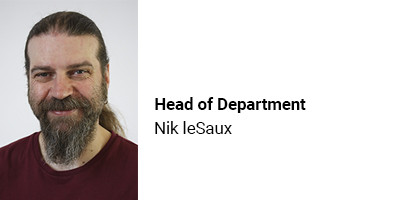Psychology A Level
Qualification: GCE A Level in Psychology
Exam Board & Specification Code: AQA; 7182; Specification
Course Entry Requirements: 4 in Maths GCSE and 4 in English Language GCSE or 4 in English Literature GCSE
Please make sure that you have understood the overall entry requirements to study at BHASVIC. These are available here and outline the GCSE grades you need to take up one of the Study Programmes at the college.
Length and size of qualification: 2 year single course
Timetable hours: 4.5 hours per week
Assessment method: 3 x 2 hour exams
BHASVIC Department: Psychology
What will I study?
Topics include conformity, obedience, resisting obedience, influences on social change, memory and why we forget, eye-witness testimony, development of attachments, maternal deprivation, orphan studies, definitions of abnormality, the causes and treatments of mental disorders: phobias; depression; OCD; schizophrenia, origins of psychology, approaches to psychology, the nervous system, neurons and synaptic transmission, how psychological investigations are conducted, statistical analysis and data collection, brain localization, biological rhythms, the endocrine (hormonal) system, cognitive development, forensic (criminal) psychology
Is this course right for me?
Students must be interested in people, why people do things, say things and think things. Students must have an open mind, and be able to change their opinions in light of scientific evidence. Students must be really keen to develop their evaluative skills, using self-reflection and peer work. Students must realise that psychology is a rigorous scientific discipline and will be expected to work hard. Students will be supported in and out of lessons through challenging concepts, and will be expected to work independently and collaboratively throughout an ultimately rewarding two years. You will need good Maths and English skills.
Where next?
Psychology is useful for any job that requires lots of interaction or an understanding of human behaviour and development. As a science, Psychology is a thriving academic discipline dedicated to the study of human behaviour and the connected thoughts, feelings, and motivations behind it. People with skills in Psychology are sought after in business, management, sport, teaching, research, social work and careers in counselling and healthcare. Skills that you will develop from studying Psychology will include analytical and organisational skills and learning about scientific research methods and collecting and working with data. Learning about human behaviour can also help to build your communication , teamwork and leadership skills. Jobs directly related to your degree could include: Psychologist (various specialisms), Teacher, Mental Health and Wellbeing Practitioner. Jobs where your degree would be useful include: Advice Worker, Human Resources Officer, Market Researcher and Play Therapist. Useful websites include British Psychological Society, Prospects, All About Careers and The Apprenticeship Guide.
ApplyLast year, 102 BHASVIC students went onto study Psychology-related degrees at 44 different universities.
It is regularly in the top two subjects our students go onto study at university.
Popular universities included Bristol UWE, Royal Holloway, Chichester, Liverpool, Exeter, Manchester and Sussex. One student went onto study Psychological and Behavioural Sciences at Cambridge which is extremely competitive.
Should I study Psychology at degree level?
How do children acquire language? Why do we forget things? What makes a good leader? If these sorts of questions interest you, psychology could appeal. The BSc Psychology course starts off almost like an A-Level overlap in the first year, but gets rapidly more challenging, particularly noticeable with the neuroscience components.
Types of Psychology degree
You can choose to study single honours Psychology or a closely related subject, for example
- Criminology
- Behaviour
- Applied Psychology
- Criminal Psychology
- Forensic Psychology
- Neuroscience
Entry Requirements
A-levels (or equivalent) usually required
- No Specific Requirements
Useful to have
- Psychology
- Sociology
- Biology
- Mathematics
Top Universities for Psychology
Oxford, Bath, Cambridge, St Andrews, Durham
Loughborough, Newcastle, Kent, York – all very high student satisfaction scores
Lancaster, Leeds, Southampton - all with top graduate prospects
Many of our students choose a combined degree - applications from our students have included:
- Criminology and Criminal Psychology
- Psychology (Sport, Health and Exercise)
- Psychology with Cognitive Neuroscience (Including Placement Year)
- Forensic Psychology
Example entry requirements:
A-Level/BTEC equivalents (please check):
Newcastle Psychology A,A,A
Bristol UWE Psychology UCAS Points: UCAS Points 128
Sheffield Hallam Criminology & Psychology UCAS Points 112-120
Why not try a foundation degree or higher apprenticeship?
Coventry Applied Psychology (Foundation) UCAS Points: 40
Some examples of Psychology-related degrees that our BHASVIC students have gone onto study in the past few years are:
- Applied Psychology (Clinical)
- Business Psychology
- Cognitive Neuroscience and Psychology with Industrial/Professional Experience
- Cognitive Psychology with a Year Abroad
- Counselling and Mental Health
- Criminology with Forensic Psychology
- Forensic Investigative Psychology
- Marketing with Psychology
- Music and Music Psychology
- Neuroscience and Psychology
- Philosophy and Psychology
- Philosophy, Psychology and Scientific Thought
- Psychological and Behavioural Sciences
- Psychology (Study Abroad)
- Psychology (with a professional placement year)
- Psychology in Education
- Psychology with Clinical Psychology
- Psychology with Criminology
- Psychology with Mental Health
- Psychology, Clinical and Cognitive Neuroscience
- Psychology (Clinical)
- Psychology and Sociology
- Psychology and Sport & Exercise Sciences
- Psychology with Business and Management
- Psychology, Clinical and Cognitive Neuroscience
- Sport and Exercise Psychology
How BHASVIC helps: We have a wide range of information and resources to support students applying for university including subject area guides, personal statement and UCAS resources, super-curricular activity guides, open day and bursary information. We also cover university research, careers, art foundation and all other destinations in depth in tutorial and students can choose an appropriate pathway for them in the second year from UCAS, Employability & Enterprise, Visual Arts, Oxbridge and Medics. Our Spring Futures Fair brings in a huge number of university visitors with workshops and information stands and departments will bring speakers in wherever possible.
Studying psychology gives you a broad range of skills that span both science and the arts which open up opportunities with many employers
- Advice worker
- Psychology wellbeing practitioner
- Careers adviser
- Social Worker
- Counsellor
- Occupational Therapist
- Detective
- Human resources officer
- Life coach
- Market researcher
- Play therapist
- Psychotherapist
Career Prospects
Jobs in psychology itself are incredibly competitive, so to stand a chance of securing one, you need to get a postgraduate qualification (probably a doctorate in most fields) and some relevant work experience.
But even though there are so many psychology graduates far more than there are jobs in psychology this subject has a lower unemployment rate than average because its students are so flexible and well regarded by business. With a mix of good people skills and with excellent number andb data handling skills, studying psychology ticks most employers' boxes.
Local Market Information
Education
There is a pressing need for pastoral care workers in Education which is an excellent route for Psychology graduates.
Examples of apprenticeships and opportunities include:
- Antisocial behaviour Caseworker
- Assistant Psychologist
- Mental health Caseworker
How BHASVIC helps: We have an excellent Careers Hub and careers advisors who are available for appointments through student services. Local jobs are advertised and they will advise on skills and specialist areas such as degree apprenticeships. Students can choose an appropriate pathway for them in the second year from UCAS, Employability & Enterprise, Visual Arts, Oxbridge and Medics. Our Spring Futures Fair brings in a huge number of careers & apprenticeship visitors with workshops and information stands and departments will bring speakers in around the subject area.
You will gain many transferable skills studying Psychology that will be valued in the workplace including:
Understanding different theories and analysing data, critical thinking, presentation skills, understanding different perspectives, discussion and presenting arguments
Local Skills
The Local Skills agenda considers job prospects and employment in our local area of Sussex. Many of our students will contribute to the National Skills agenda and go onto find a career in a wide range of sectors. For students in Sussex our local skills are identified as the following sectors:
- Construction
- Creative & Cultural
- Digital (includes IT and Technology)
- Engineering & Manufacturing
- Healthcare (includes Bio Life Sciences and Pharmaceutical)
- Visitor & Hospitality
- Land-based (includes Agriculture and Viticulture)
- Green Skills
Degree choices that match the Health Care Local Skills agenda our BHASVIC students went onto study include:
- Applied Psychology (Clinical)
- Cognitive Neuroscience and Psychology with Industrial/Professional Experience
- Counselling and Mental Health
- Psychology with Clinical Psychology
- Psychology, Clinical and Cognitive Neuroscience
- Sport and Exercise Psychology
Career choices that match the Health Care Local Skills agenda our BHASVIC students went onto study include:
- Mental health Nursing
- Wellbeing Consultant
- A wide variety of pastoral work in Education
- Business Psychology
- HR
How BHASVIC helps: Skills Week in A1 helps students build skills in the workplace and a focus on developing skills through tutorial in A1 and A2 supports students in writing outstanding Personal Statements and CVs. We know our students have already gained a wide variety of skills at home and with extra-curricular activities and will increasingly take up jobs. Our focus is on supporting them to evidence skills already gained, identify gaps and ensure that they transfer that to CVs and applications. This is in partnership with every curriculum area.
